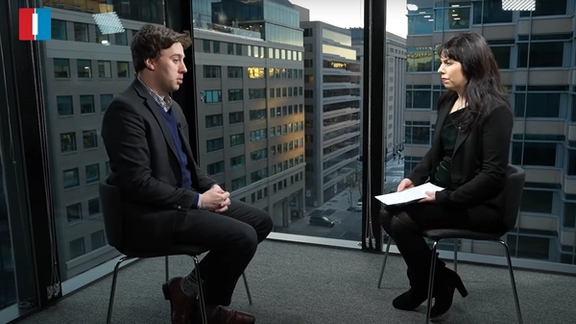Trump has excoriated his predecessor Joe Biden for allowing Iran to rake in more revenue from oil sales to boost armed allies in the region.
Newly appointed aides have pledged to revive a so-called maximum pressure campaign of sanctions on Iran to compel it to drop its disputed nuclear program.
But Trump's public break with two officials who helped mastermind the strategy may indicate a new tack on how to deal with Washington's Mideast arch-enemy.
"John Bolton, much like Brian Hook is someone who here in DC we associate very closely with the maximum pressure school of policy toward Iran," Farley said. "The fact that those two were removed must mean the President is somewhat unsatisfied with how things went in his last administration."
Trump dramatically deprived Bolton, his former national security advisor and former Iran envoy Brian Hook despite them being a target - like Trump himself - of alleged assassination plots by Tehran.
In the wake of Trump's first term, Farley continued, "Iran became more conservative, Iran became more embedded in the region in a lot of ways. That's changed recently, but perhaps that's what he's reflecting on."
"President Trump ... doesn't want to preclude maybe making a deal if he thinks it's in his interest and in the US interest. So I think, you know, he's kind of maybe giving up on theory a little bit and Maybe trying to take it in a new direction."
An advocate of hard line on friend and foe alike to advance his so-called America First policy, Trump has said Iran cannot be allowed to develop nuclear weapons but has also dismissed the idea of seeking regime change.
Speaking to reporters in the White House on Thursday, Trump said he hoped the United States would not have to support an Israeli strike on Iran to take out its nuclear sites and a deal would be preferable.
"I wouldn't say I foresee a deal, but I foresee some sort of effort to open up discussions," Farley added. "He might dangle some kind of opportunity to negotiate along with a very aggressive policy."









